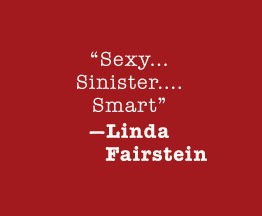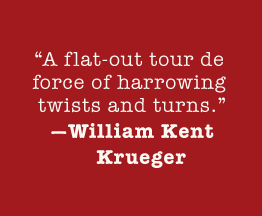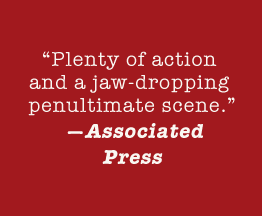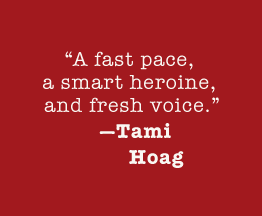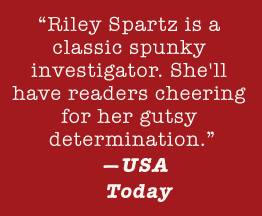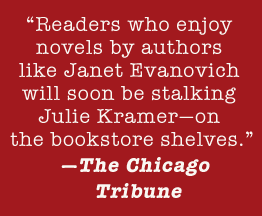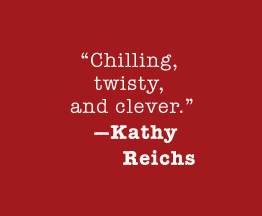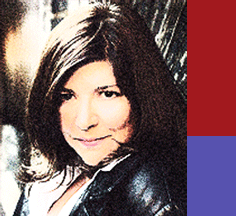
From Journalist to Novelist: My Debut Story
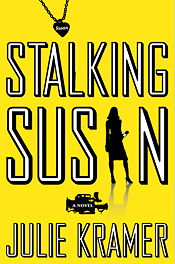 I've spent my career as a television news producer, doing investigative stories, field work, live shots and newscasts. Often I'd complain how much easier my work would be if I didn't have to stick with the facts. So when I tried writing fiction, what a surprise to hear me complain how much easier my work would be if only I had some facts. My point is, fiction is harder than it looks. For those of us geared in reality, making stuff up can feel like cheating. Once I worked through that issue, I found my news skills to be an excellent foundation for fiction.
I've spent my career as a television news producer, doing investigative stories, field work, live shots and newscasts. Often I'd complain how much easier my work would be if I didn't have to stick with the facts. So when I tried writing fiction, what a surprise to hear me complain how much easier my work would be if only I had some facts. My point is, fiction is harder than it looks. For those of us geared in reality, making stuff up can feel like cheating. Once I worked through that issue, I found my news skills to be an excellent foundation for fiction.
First, deadlines didn't scare me.
Second, interviewing hundreds of people, often on the best or worst days of their lives, helped me develop an ear for dialogue.
Third, research was second nature.
Fourth, I learned to type fast.
Fifth, news encourages tight, focused writing.
Sixth, I'd covered such a variety of events and people, that no plot or character from my imagination seemed over the top.
Because my thriller, STALKING SUSAN, is the first book I've ever written, people think I must know a secret short cut out of the slush pile. A debut colleague of mine insists we must all write half a million words before we are capable of writing a publishable novel. No argument from me. I did my half million in news. No short cut there.
But other writers continue to press me why my book sold, and all I've been able to come up with are a couple cliches: I Wrote What I Know and I Wrote What I Read.
STALKING SUSAN takes readers into the desperate world of TV ratings where an investigative reporter discovers a serial killer is targeting women named "Susan" and killing one on the same day each year.
Sounds outlandish, but a decade ago, I actually investigated such a premise in a couple of cold homicide cases. I was unable to prove it, probably because it wasn't true. But in the world of fiction, I was free to ask myself, what if?
Readers of my manuscript tell me its strength comes from the behind-the-scenes television news information I weave in the story. That brings me back to my second cliche in becoming an author: reading. Almost every journalist I know is confident they have a novel inside them. I am troubled by how many don't seem to read books. Or I'll meet a writer who's trying to get published and I'll ask what they're reading and they'll respond that they're too busy writing to read. If authors have to write a half a million words before getting published, I'd venture they might have to read ten million.
I wrote my book because I'm a great fan of thrillers featuring strong female protagonists in interesting jobs. I thought why should prosecutors have Linda Fairstein's Alex Cooper and medical examiners have Patricia Cornwell's Kay Scarpetta and forensic anthropologists have Kathy Reichs' Tempe Brennan and we TV news types have no fictional heroine? So I made one up.
I wish I had a more interesting story about how my first book sold— I'm envious of Vince Flynn's tale of self-publishing his way to the top or folks who talk about all the manuscripts under their bed or an office wallpapered with rejection letters—because adversity makes for a more compelling story (that's why we pile it on our protagonists.)
My story is fairly bland. I asked an author friend, Steve Thayer (The Weatherman), for the name of his agent, then queried Elaine Koster with my first fifty pages. About a month later she asked for the rest, soon after she offered to represent me because of what she called my "voice." I don't have one of those deep, rich broadcast voices, so no one in news had ever paid me such a compliment before. But she was talking about my writing voice, something she says you either have or you don't.
Then she and her associate, Stephanie Lehman, worked with me on revision and I learned a big difference between news and fiction. In news, when the bosses want something changed, they usually write it in, cross it out and say exactly how they want it changed. Because time is usually crucial, creativity sometimes has to bend. I know some writers consider themselves artists. I don't. Frankly, I've worked in TV news so long the art was beaten out of me long ago. Give me the changes; fine unless it's a factual error.
In fiction, the revision process is much more open ended. I was asked questions about my characters and plot, but basically I had to find the answers. And when I tried to rush the changes, I was told to slow down and get it right. "You only get one chance with these people," my agent warned me. "The manuscript has to be ready to go." So I hunkered down and kept working at it until even I could see it was better and she pronounced it ready. Then I tried not to think about it.
A couple weeks later, the call came. Honestly, I don't recall the details. I was in the middle of a news shoot. My cell phone rang. It was a 212 number so I figured the network desk was calling to mess with me. I answered with an exasperated now what? Instead it was my agent calling to say Doubleday's Stacy Creamer wanted the book. I mumbled something about can I call you back and she responded with a this-editor-is-a-perfect-match-for-you and we-need-to-take-this-deal-now and I said okay and went back to my shoot and didn't tell my camera guy, Erik Prentnieks, I sold a book until months later because it didn't seem real.
It wasn't hard to keep quiet because only a handful of people even knew I was writing a novel. That's another thing about journalists: we're good at keeping secrets.
My best friend, who had never expressed anything but confidence in my book, later confided she had been a little worried because protagonists generally need to be sympathetic and likable and no one really likes TV news people. But you like me, I insisted, trying not to sound like Sally Field on Oscar night. But I met you before you went into television, she reminded me. I thought about it and realized that in fiction, TV journalists are often portrayed as secondary characters who are stupid or jerks or stupid jerks. But that's fiction.
This article first appeared on ThrillerWriters.org

